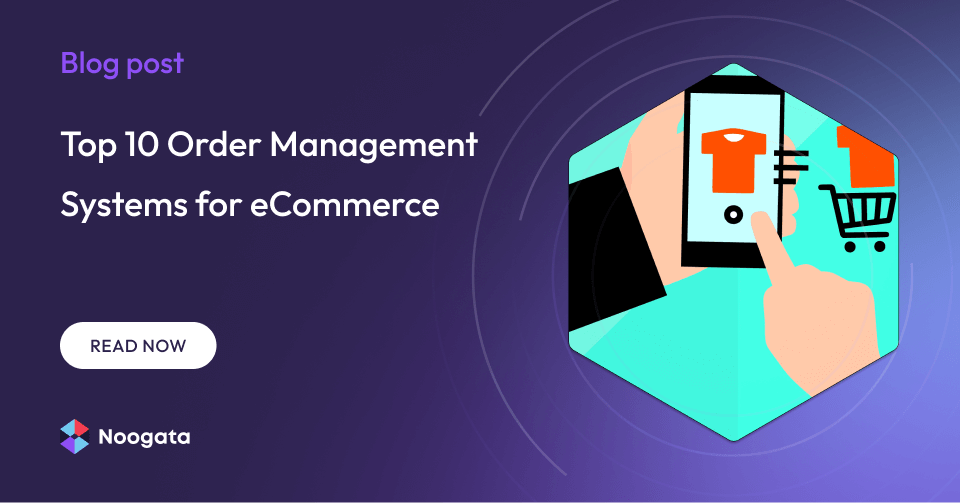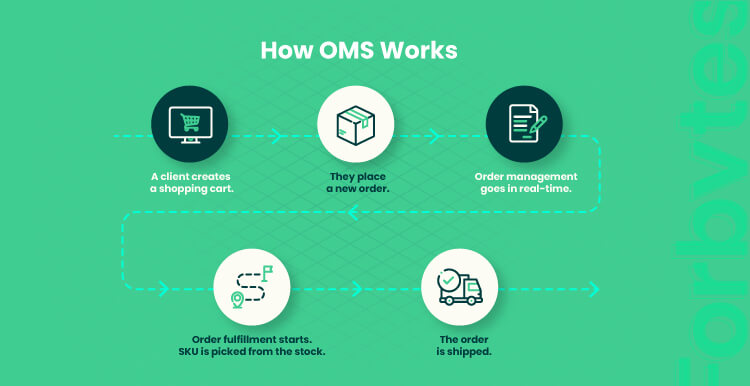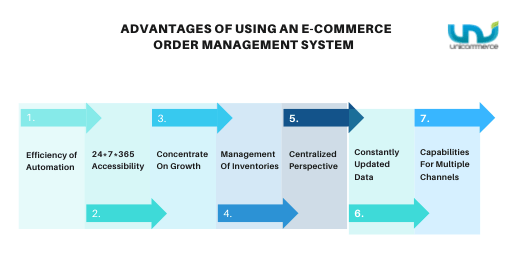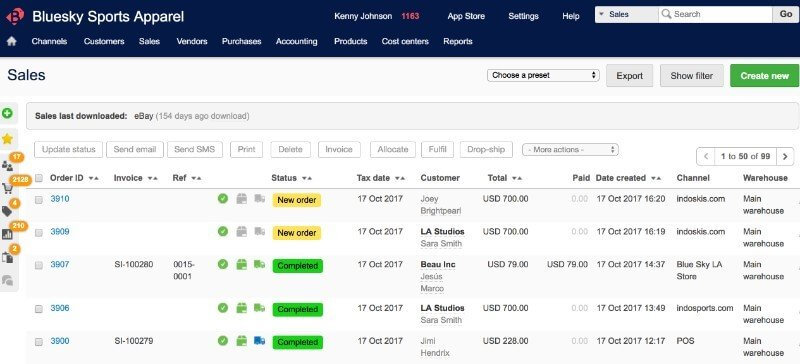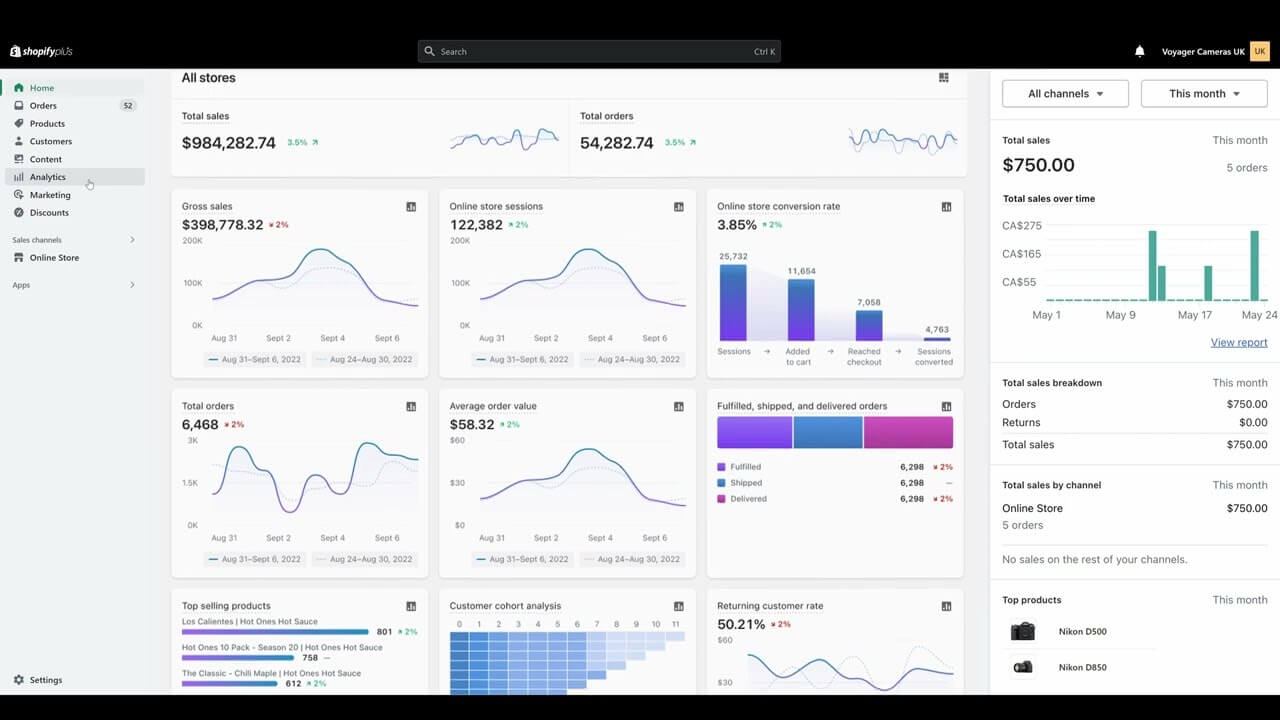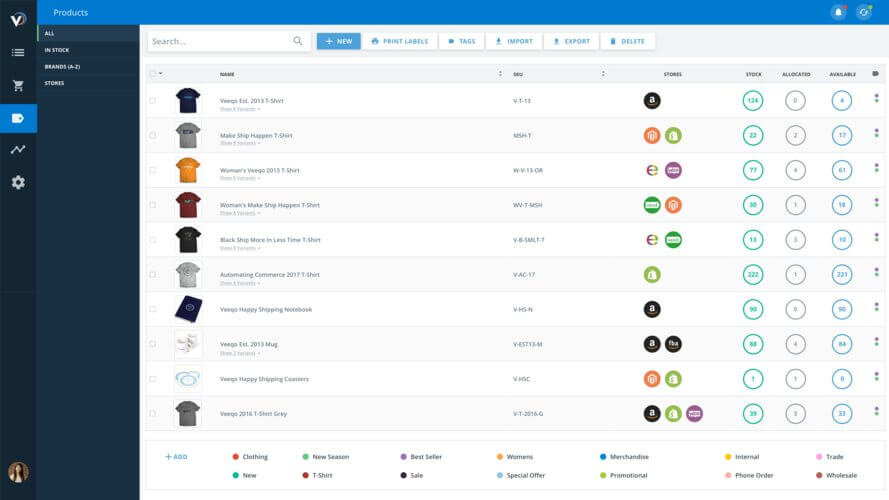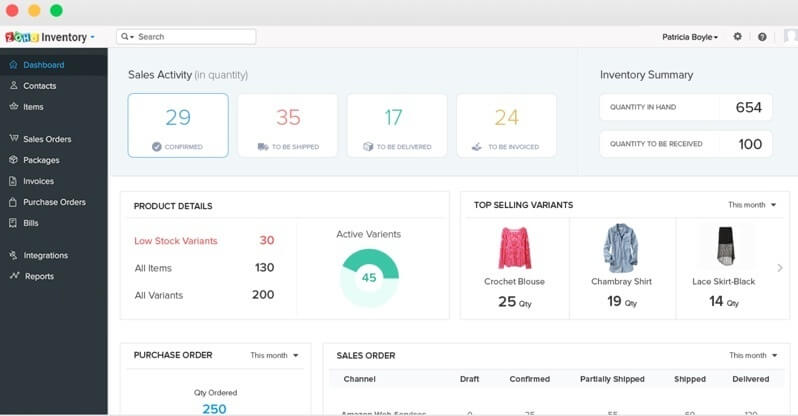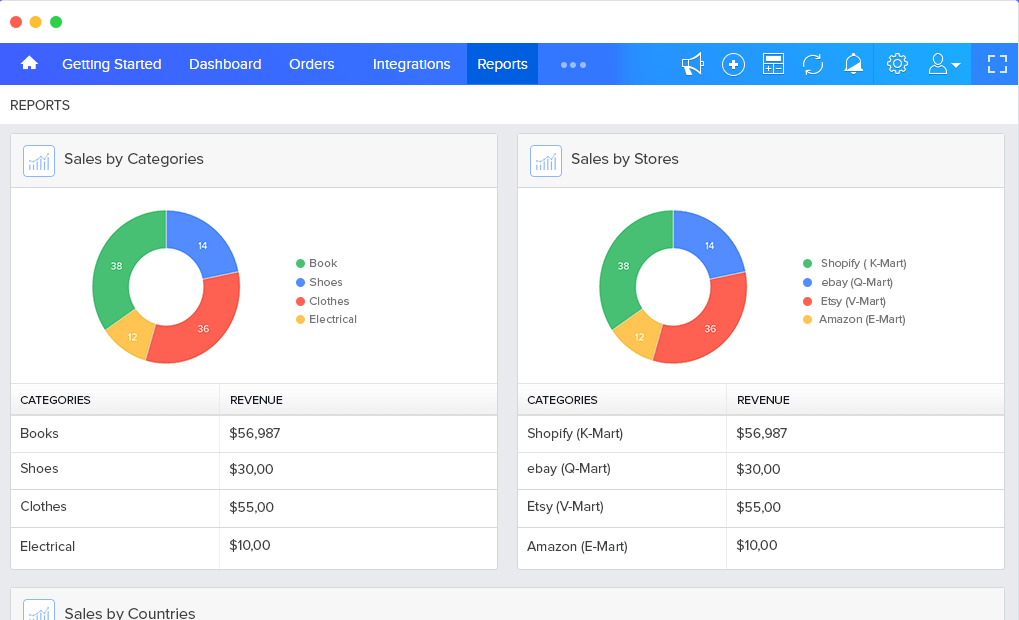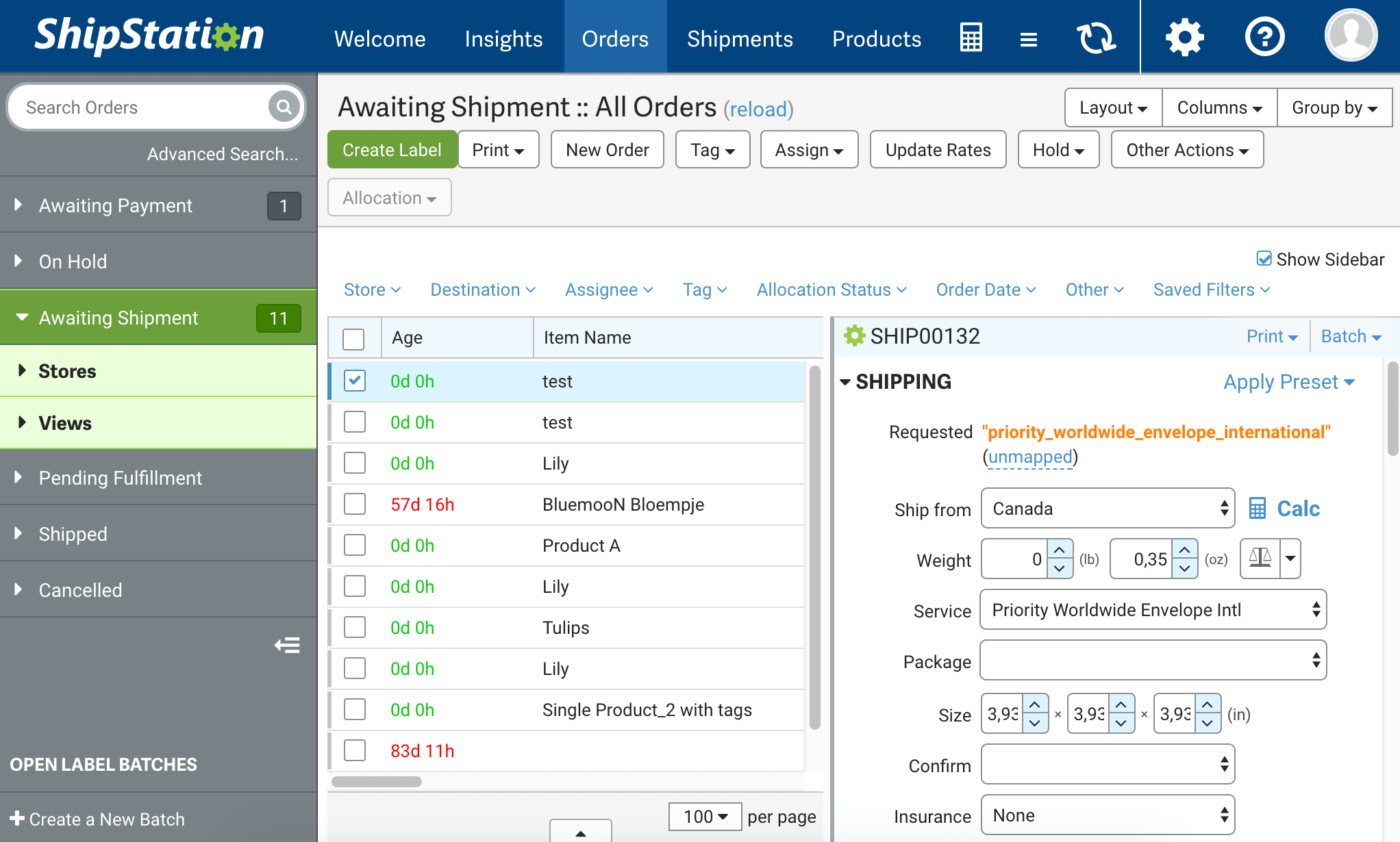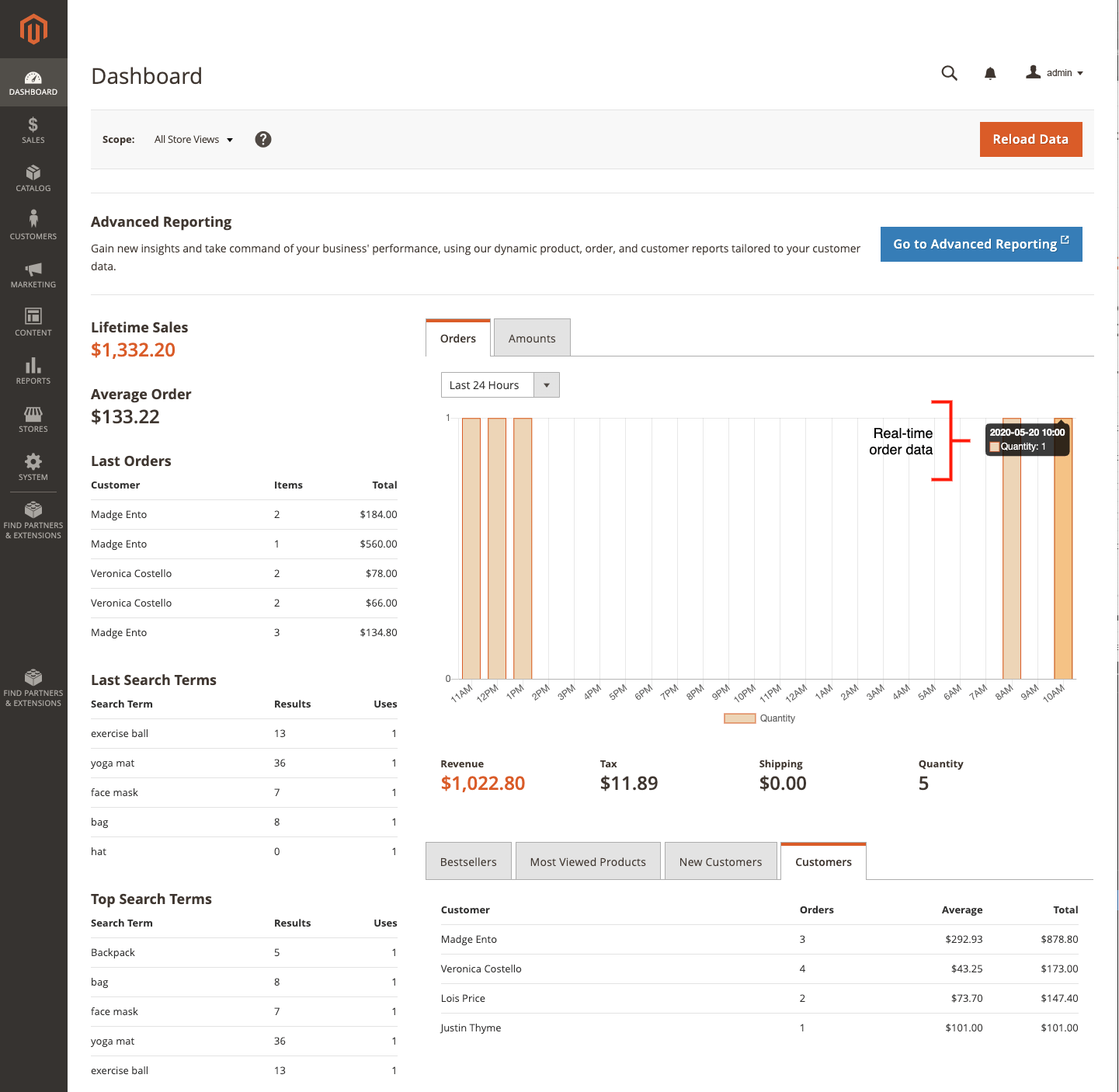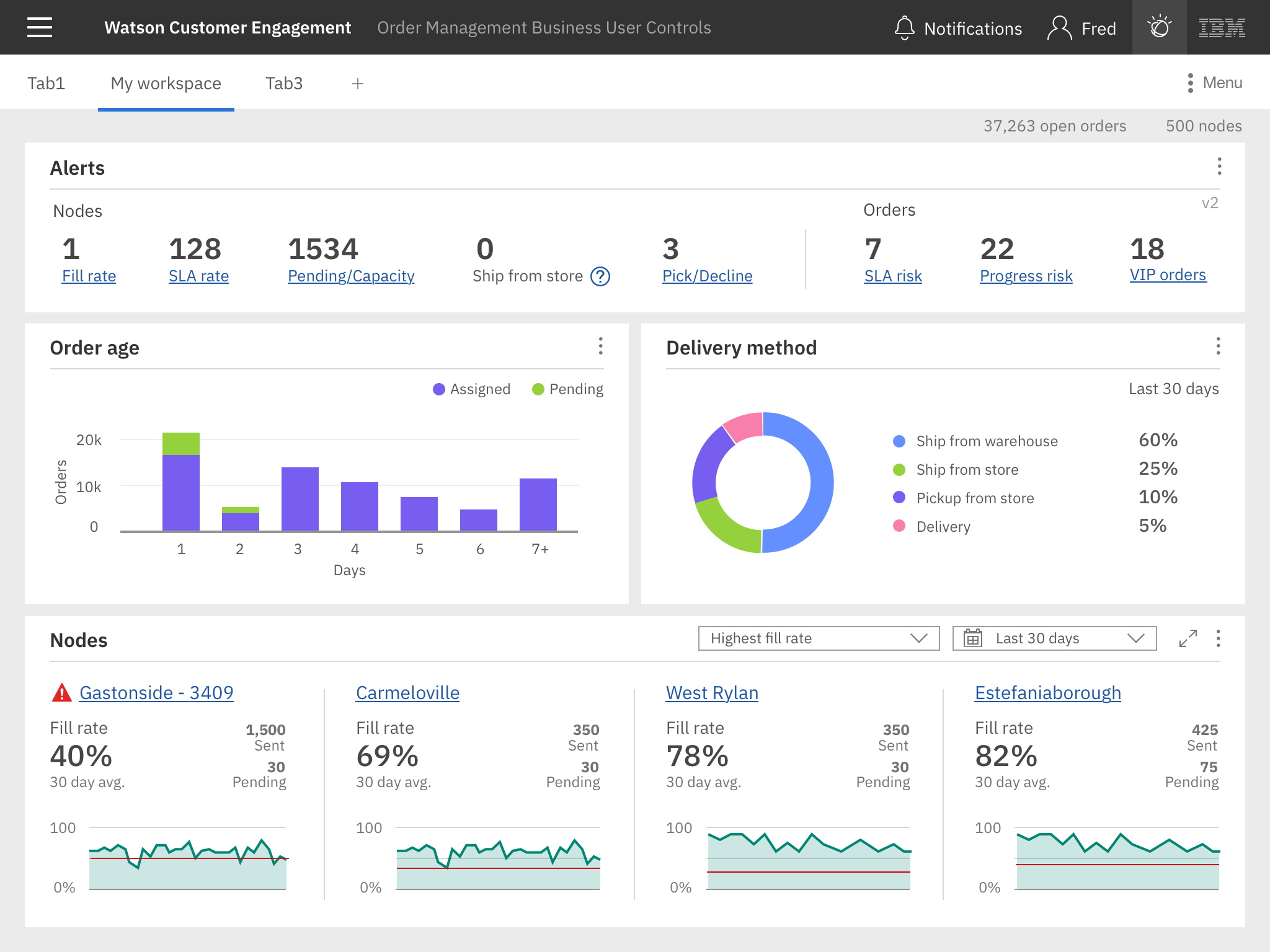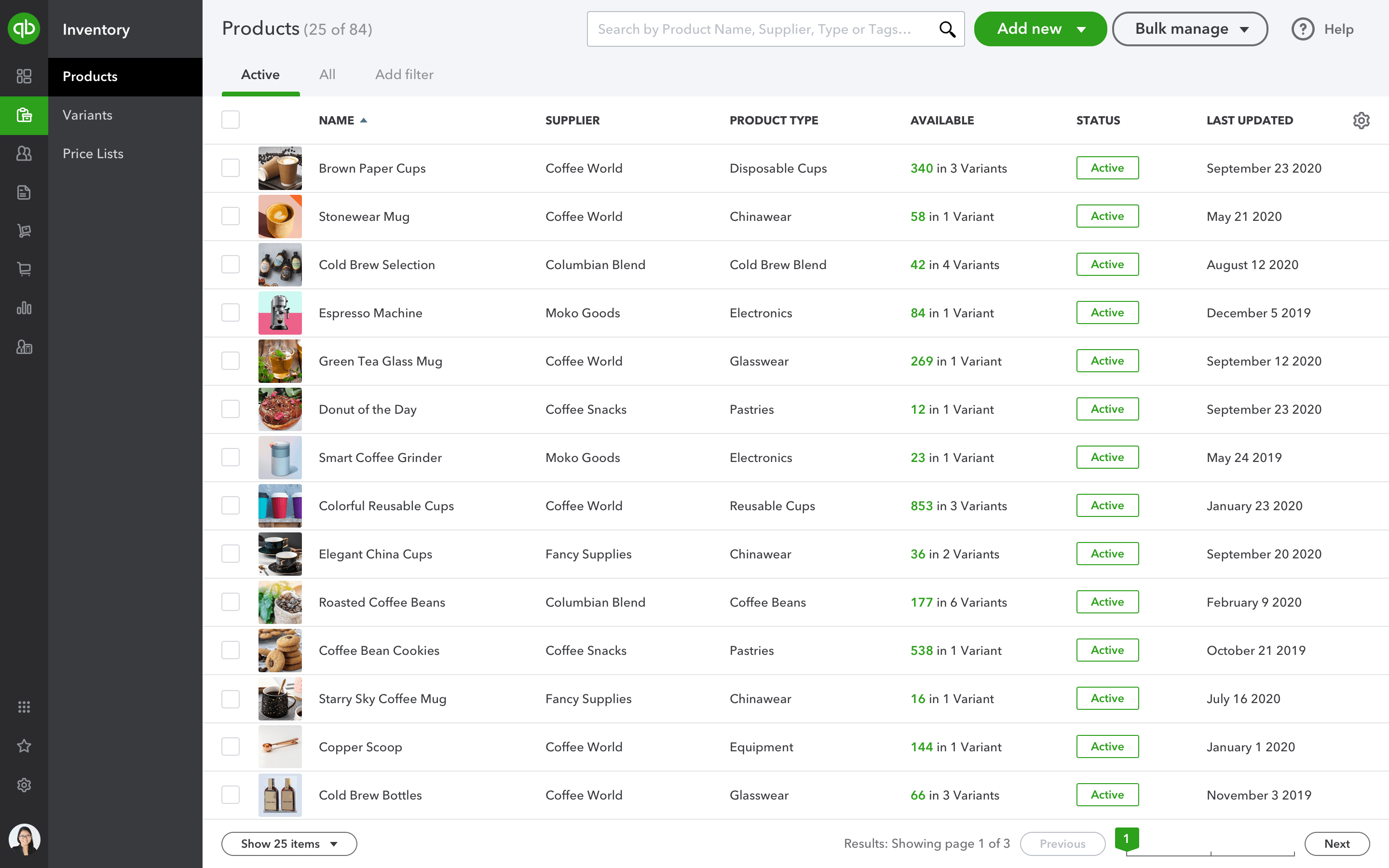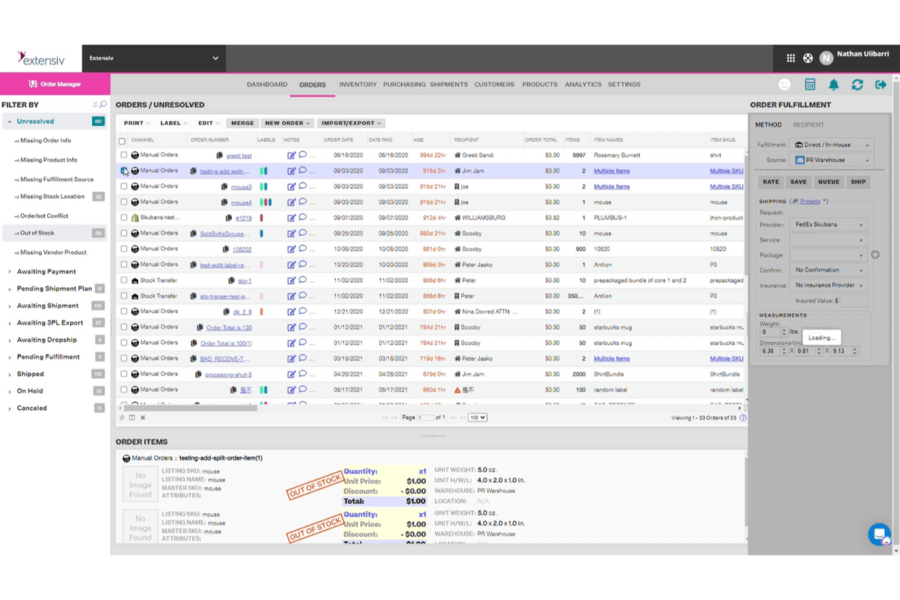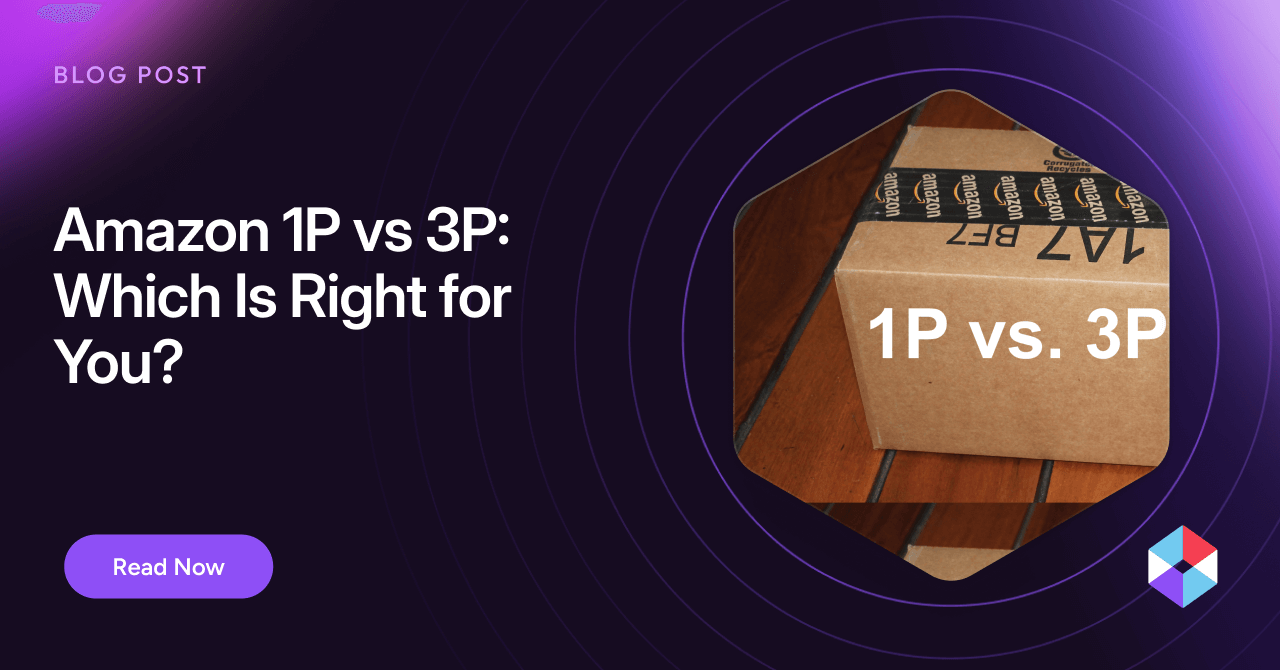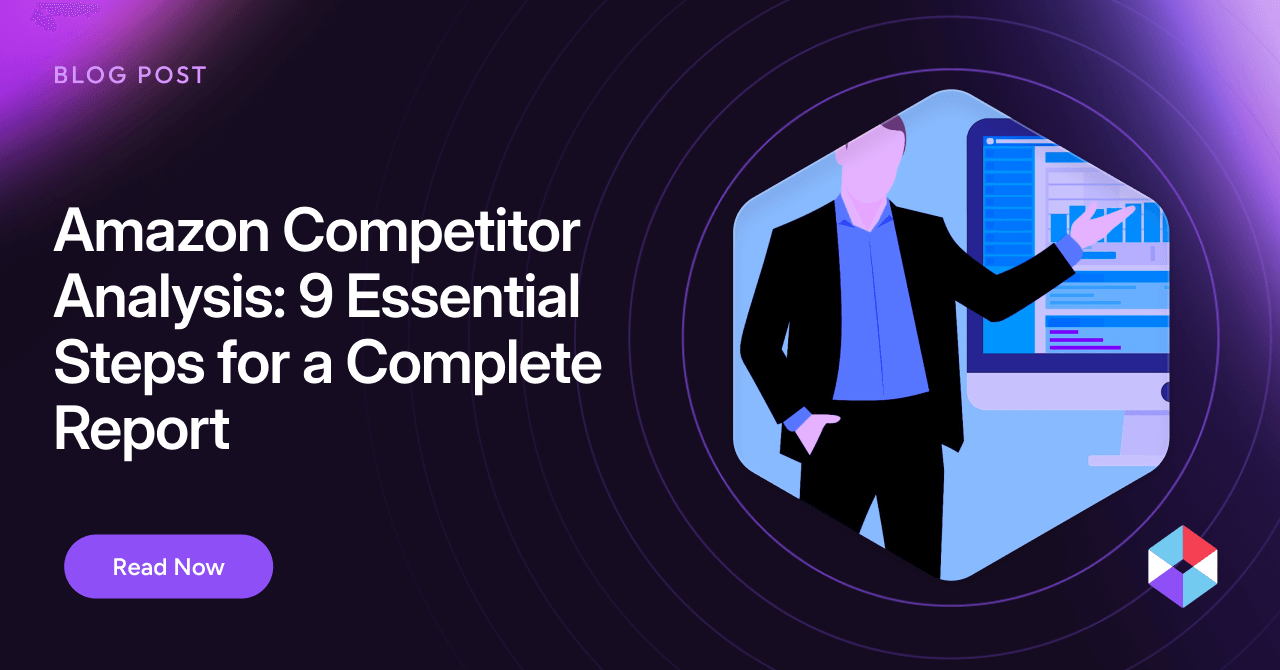In eCommerce, you develop exceptional products, dream up brilliant marketing campaigns, and build strong relationships with loyal customers. You also get to spend a lot of time processing and fulfilling orders. That might be less exciting, but getting this critical part of your operations right is just as important as the more creative aspects of the business.
Last year, consumers worldwide spent $3.59 trillion on online purchases. However, that doesn’t always mean logging into a website and filling a shopping cart. Consumers increasingly use multiple channels to research and complete their purchases, and merchants who don’t adopt an omnichannel selling strategy could be missing out on up to 30% of their potential sales.
The catch is that as much as they expect flexibility across channels, consumers want consistency too. Using a back-end order management system to handle all your orders in the same way, whether they’re coming from your website, social media, or any other sales channel, will ensure your customers have a positive experience every time they purchase.
To help you choose the right solution for your business, this post will survey the top ten order management systems for eCommerce.
Jump to:
- Key Features of Order Management Systems for eCommerce
- Top 10 Order Management Systems for eCommerce
What are Order Management Systems for eCommerce?
An order management system handles all the processes that start rolling once the customer finalizes their purchase. It tracks your inventory to ensure items are in stock, sends order information to the warehouse, and oversees fulfillment and returns. Order management systems improve your efficiency by automating many of these processes, such as arranging shipments and reordering items when you’re about to run out.
Types of Order Management Systems
Order management systems will fit into one or more of the following categories:
- Standalone: Includes order management, among other critical eCommerce functions.
- Integrated: Adds order management features to your existing eCommerce platform.
- Cloud-based: Accessible from anywhere, with no local installation required.
- Omnichannel: Capable of handling orders across a wide variety of different sales channels.
- Enterprise: Powerful and scalable for high-volume merchants.
- Small Business: Made for small businesses, with user-friendly (but sometimes limited) features.
Benefits of Order Management Systems
The number one benefit of an order management system is that it will automate many activities that you would otherwise have to do manually. Entering order information, checking inventory, locating the item in your warehouse, and making shipping arrangements will quickly become overwhelming as a business grows.
Order management systems will significantly streamline these operations, and even after the order has been processed and fulfilled, they can enhance your efficiency by providing customers with real-time tracking information and facilitating returns.
With the right order management system, you can use tools like Noogata to scale up your business as needed without being constrained by bottlenecks in your fulfillment process.
Key Features of Order Management Systems for eCommerce
Before choosing an order management solution, analyze your operations to determine your areas of greatest need. For example, a retailer that offers physical goods for delivery and in-store pick-up will have very different requirements than a B2B SaaS vendor.
No matter what you’re selling, there are several key features that every worthwhile order management system should offer:
- Ease of use
- Cost-effectiveness
- International selling support
- Omnichannel support
- Integrations with eCommerce platforms, marketplaces, and carriers
- Shipment tracking
Make sure your final choice covers your specific business needs without skimping on the essentials.
Top 10 Order Management Systems for eCommerce
Standalone OMS
1. Brightpearl
Brightpearl bills itself as a “retail operating system” that can automate a wide range of operations, including fulfillment, inventory planning, and accounting. It also features analytics and reporting to assist you with measuring and forecasting your sales performance. Brightpearl’s versatile library of plug-and-play apps means you can integrate it with any social media channel or marketplace you sell on.
Best for: Multichannel merchants who need a scalable and versatile solution.
Price: By inquiry.
Review: “The support they provide and ease of using the system make up for the price tag.”
2. Shopify Plus
Shopify Plus is a single platform that can handle just about all your needs as an eCommerce seller, including inventory and shipping management (with carrier discounts). Designed to work with multiple channels and brands simultaneously, Shopify Plus can be extensively customized by working with its many apps and partners. It fully supports customer-friendly sales options like BOPIS and one-click checkout.
Best for: Anyone who wants a customizable, full-service platform.
Price: Starts at $2,000 monthly.
Review: “Shopify Plus is built to handle large volumes of traffic and orders, making it a good choice for businesses that expect to grow rapidly or that already have a good amount of orders.”
Integrated OMS
3. Veeqo
Veeqo’s recent acquisition by Amazon means it’s an excellent choice for Amazon Marketplace sellers who need an order management system that works seamlessly with the world’s largest eCommerce store while remaining compatible with popular frameworks like Shopify. Veeqo can provide sellers discounted carrier rates and protect them from negative delivery-related feedback on Amazon.
Best for: Merchants who sell primarily through Amazon Marketplace.
Price: Free.
Review: “Managing multiple marketplaces and eBay multi-variation listings used to be a time-consuming struggle, but this tool streamlined everything.”
4. Zoho Inventory
Although it’s primarily an inventory management solution, Zoho Inventory has all the makings of a solid order management system. In addition to automating the workflows related to inventory planning and warehouse control, Zoho can handle multiple sales channels and currencies, integrates with many carriers and eCommerce platforms, and provides a portal for collaboration with your vendors and customers.
Best for: Businesses with complex inventories or multiple warehouses to manage.
Price: $79 to $399 monthly, with a free trial version and discounts for annual billing.
Review: “For the price, you get an amazing amount of tools for managing inventory. It has a great integration with Amazon and makes everything sync very easily.”
5. Orderhive
This award-winning order management system automates inventory, shipping, manufacturing, and purchasing, with a mobile app that gives you access to all its features no matter where you are. Orderhive is designed with multichannel sellers in mind, and integrates with your favorite eCommerce platforms and marketplace sites.
Best for: Merchants who want a system with a balanced set of features and many integration options.
Price: By inquiry.
Review: “Orderhive has a very customizable interface which carries across all authorized users, which is incredibly helpful for streamlining order review processes.”
Cloud-based OMS
6. ShipStation
This solution keeps a tight focus on shipping, offering more than 80% savings on carriers like USPS, UPS, and DHL. ShipStation optimizes your fulfillment process by importing your order data, making shipping arrangements, printing postage, and tracking the delivery of your packages.
Best for: Making your shipping process more streamlined and cost-effective.
Price: $9.99 to $229.99 monthly, by inquiry for unlimited shipments. They offer a free trial.
Review: “ShipStation has saved us many headaches and a lot of time.”
Omnichannel OMS
7. Adobe Commerce
Adobe Commerce used to be the popular eCommerce platform Magento. With Adobe’s resources now backing it, this platform gives merchants all the tools they need to build and grow an eCommerce site that drives conversions. Their real-time inventory and order management features provide smart, flexible sourcing and fulfillment options for B2C and B2B sellers.
Best for: Merchants who want an AI-powered platform with full omnichannel support.
Price: By inquiry.
Review: “Adobe provides strong strategic partnership and amazing support for the product.”
Enterprise OMS
8. IBM Sterling
IBM offers a strong OMS contender in Sterling, an order management system designed to equip multichannel businesses with all the functionality they could need. With a user-friendly interface and cloud-based tools for managing inventory, warehousing, orders, and fulfillment, Sterling can capably support multi-brand, high-volume eCommerce enterprises.
Best for: Large businesses with complex and demanding fulfillment scenarios.
Price: By request.
Review: “This tool is great for its time-saving capabilities and commerce integration. I like that it is flexible and cloud based and very easy to use.”
Small Business OMS
9. QuickBooks Commerce
Another solution from a trusted name, QuickBooks Commerce integrates with Shopify, eBay, and Amazon to help you manage orders and inventory. It automatically sends your eCommerce data to your QuickBooks accounting system, streamlining the reconciliation and financial reporting processes.
Best for: Merchants who are already using QuickBooks for their accounting needs.
Price: $15 to $100 monthly.
Review: “QuickBooks Commerce helps our business grow without the headache of multiple apps or programs to keep track of everything.”
10. Extensiv
Extensiv handles your orders from the point of sale to the final delivery, and they include excellent warehouse management features for third-party logistics providers. With plenty of integration options and a mobile app for on-the-go access, Extensiv is an easy-to-use but robust solution covering the essentials of order management.
Best for: 3PL providers who need a system built with their needs in mind.
Price: By inquiry.
Review: “It’s very simple to train new employees on. It’s a very good tool for small to medium-sized companies.”
Competitive Intelligence Keeps Order Management Systems Busy
Once you’ve found the perfect order management system for your eCommerce business, what better way to break it in than to send lots of new orders to crunch?
One way to ensure that happens is to use Noogata, a competitive intelligence tool that uses AI-powered analytics to find the best products to stock and sell on Amazon and other eCommerce marketplaces.
Sign up for a free demo today to see how Noogata can keep top-selling goods flying off your digital shelf.
